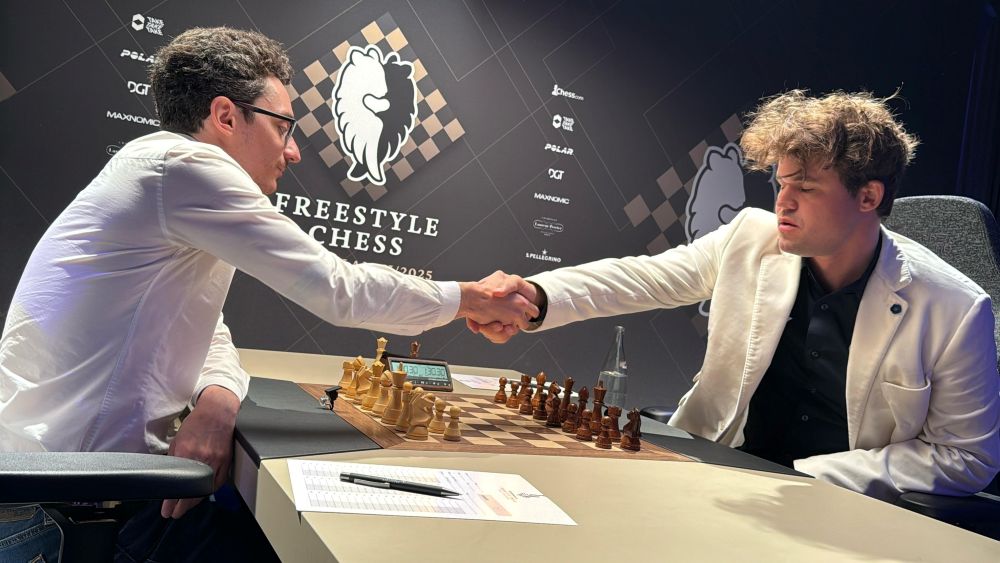A new chapter is unfolding in the competitive chess landscape with the launch of the Freestyle Chess Grand Tour (FCGT). This series of events, featuring top players including the reigning World Champion Dommaraju Gukesh and former five-time World Champion Magnus Carlsen, promises exciting action under a fresh format. But beyond the strategic battles on the 64 squares, the tour`s debut has also highlighted a notable disagreement between its organizers and the sport`s global governing body, FIDE.
What Exactly is Freestyle Chess?
At the heart of the FCGT is “Freestyle Chess,” a format perhaps better known as Chess960. Conceived by chess legend Bobby Fischer back in 1996, Chess960 aims to mitigate the extensive memorization of opening lines that dominates classical chess. Instead, the starting position of the back-rank pieces is randomized, adhering to specific rules: bishops must occupy squares of opposite colors, and the king must be positioned between the two rooks. These constraints result in precisely 960 possible starting setups, hence the name.
The key appeal of this format is its emphasis on pure chess understanding and adaptability from the very first move. Players cannot rely on pre-prepared sequences but must immediately assess the unique position and formulate a plan. While traditional Chess960 often utilizes rapid time controls, the FCGT incorporates classical time controls, particularly in the crucial knockout stages, offering a fascinating blend of novelty and depth.
The Tour Organizers vs. FIDE: A Chessboard Standoff
The lead-up to the FCGT wasn`t without its drama. A point of contention arose from the FCGT organizers` initial use of “World Championship” terminology for their tour and the eventual winner. FIDE, as the internationally recognized governing body, maintains the sole right to organize official World Championships, including previous editions of the Fischer-Random World Championship.
Allegations emerged from the FCGT camp, notably from organizer Jan Henric Buettner and supported by Magnus Carlsen, suggesting FIDE was threatening players who might participate in rival `world championships`. FIDE, represented by figures like CEO Emil Sutovsky, countered that while player contracts contained clauses regarding participation in competing events, they were not actively enforcing outright bans. The dispute escalated to Carlsen and Buettner publicly calling for the resignation of FIDE President Arkady Dvorkovich, citing broken promises.
Ultimately, a temporary resolution was reached: the FCGT organizers agreed to remove the term “World Championship” from their promotional materials for the next ten months. Thus, the feud is currently in a state of pause, allowing the tournament to proceed, but the underlying tensions could resurface later in the year.
Why This Format Attracts Top Players
For players like Magnus Carlsen, Freestyle Chess offers a refreshing departure from the demands of classical chess preparation. Carlsen has been vocal about the fatigue associated with extensive opening analysis, which he cited as a reason for stepping away from the classical World Championship cycle. Chess960 minimizes the need for such preparation, allowing players to focus on their innate tactical and positional skills, making it particularly appealing to those who thrive on improvisation and on-the-board creativity.
World Champion Gukesh`s participation is significant, as the FCGT reserved a spot for the reigning champion. Other prominent Indian players, such as R Praggnanandhaa and Vidit Gujrathi, contested the qualifying events, although neither ultimately secured a spot in the main tour. Notably, Viswanathan Anand, initially invited via a wild card, withdrew following criticism from Carlsen regarding Anand`s position within FIDE.
Inside the Freestyle Chess Grand Tour
The FCGT is structured as a global series featuring five events (“Grand Slams”) throughout 2025, hosted in locations including Germany, Paris, New York, New Delhi, and Cape Town. Each event brings together ten elite players.
The format within each Grand Slam consists of two main stages:
- Round-Robin: The ten players compete against each other in a rapid time control format (10 minutes per game plus a 10-second increment per move).
- Knockout: The top eight players from the round-robin advance to a knockout bracket. These matches are played under classical time controls (90 minutes plus a 30-second increment).
Players earn points in each Grand Slam based on their final ranking, using a scoring system similar to Formula 1 (25 points for 1st, 18 for 2nd, and so on). The cumulative points across the five events will determine the overall Freestyle Chess Grand Tour champion.
The Freestyle Chess Grand Tour represents an ambitious effort to innovate within competitive chess, bringing a dynamic format and high-profile players to the fore. While the initial sparring with FIDE added a layer of political intrigue, for now, the focus shifts to the board and the unpredictable battles promised by Chess960.

